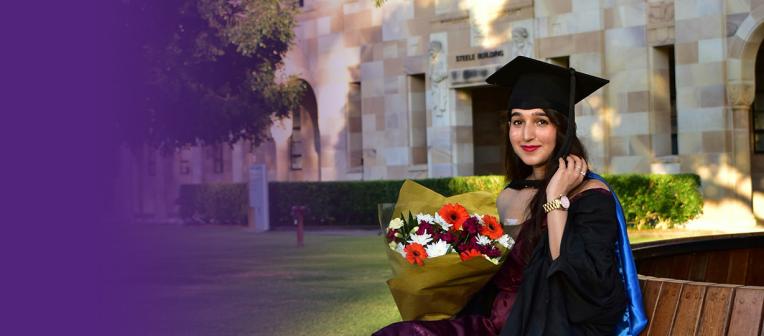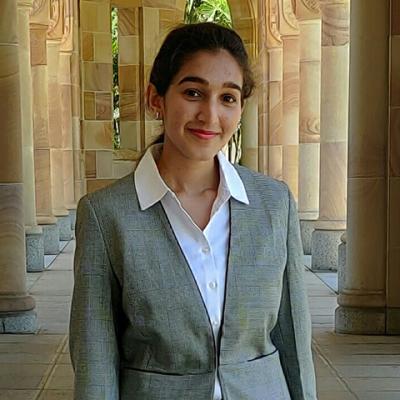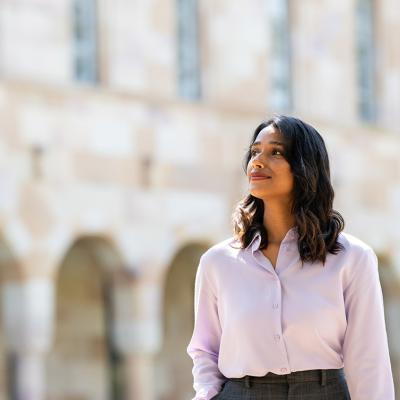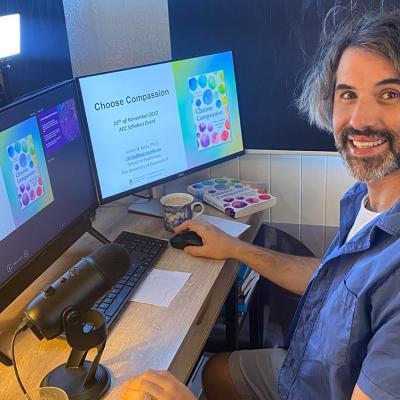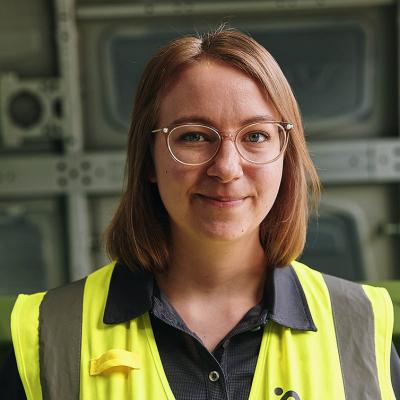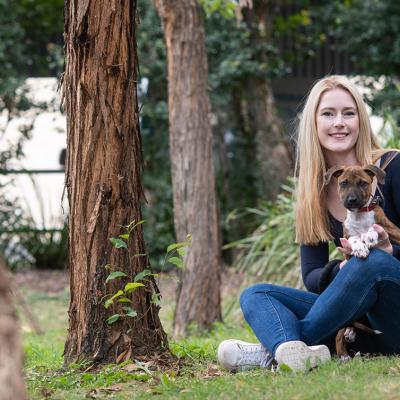Shrika Charbhe has been intrigued by the human mind and its capabilities for as long as she remembers. So completing a Master of Counselling at UQ and going on to work with young people at headspace just seemed right.
Taking responsibility for our own mental wellbeing is enough – and sometimes too much – for many of us. But then there are precious people like Shrika who also take on the weight of others’ mental health.
She’s always been a keen observer of people, with an enduring curiosity to know and understand everyone’s perspective on matters. Through studying counselling and working in this field, Shrika’s understanding of peoples’ thoughts, emotions and actions has only deepened.
“Studying counselling has contributed to my development and positively impacted all aspects of my life,” she says.
“So I believe it is my responsibility to apply my knowledge and skills to bring about positive change in others’ lives.”
Narrowing down her calling
It’s one thing to recognise that you have a passion for psychology. It takes a little more time and introspection to discover your niche calling.
For Shrika, the niche calling was counselling, and the ‘little more time’ was a hospital internship she completed as part of her Bachelor of Arts.
“During this internship, I realised that I was more interested in other branches of psychology and didn’t want to pursue clinical psychology,” she says.
“I did some research and found counselling and it immediately clicked with me – I resonated with its values in non-pathologising, humanistic and strengths-based approaches towards human growth.”
Shrika’s next step was finding the best path to pursue a career in counselling. She began by completing a postgraduate certificate in counselling psychology while still living in India, her home country. This 1-year sample of the study area reinforced that she was on the right track, motivating her to seek further qualifications.
“I was inspired by that course to learn more about the field and pursue a master’s degree to become a counsellor,” she says.
“I researched many courses at world-renowned universities, but the Master of Counselling program at UQ was exactly the course that I was looking for.”
Completing the Master of Counselling
Shrika was delighted that her lived experience of UQ’s Master of Counselling matched what she expected from her research. She was particularly pleased with the teachers and content covered, which is why she now recommends the program to any aspiring counsellors who ask her for advice.
“The courses are taught by experienced and leading practitioners who are dedicated to nurturing the next generation of counsellors,” she says.
“The program is comprehensive and covers a broad range of concerns and target populations within counselling.”
“It has helped me develop a strong foundational portfolio that is valued by employers within the profession.”
Shrika loved that the program helped her learn how to support people from various backgrounds across a wide spectrum of issues. But even while learning about this wide range of target populations, Shrika was already starting to realise her particular interest in helping children and teenagers with their mental wellbeing.
“Young people are a vulnerable population and are faced with many challenges in current times,” she says.
“Equipping the youth with knowledge and skills that will serve them well into adulthood and through different circumstances in life is important to me. Supporting young people’s growth and seeing them thrive brings me immense satisfaction and joy.”
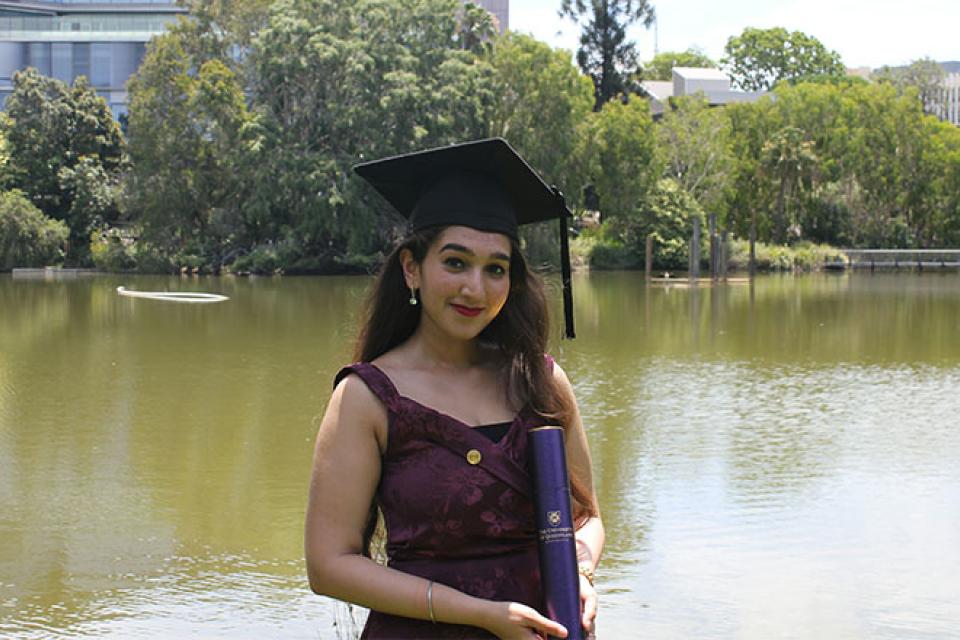
Working at headspace
As luck would have it, Shrika was able to pursue her passion for working with young people almost immediately by completing her year-long placement at headspace.
“In the second year of the program, students are required to complete a placement from a choice of organisations that provide mental health and wellbeing services,” she says.
“This placement was an excellent opportunity to apply myself in a practical setting and learn from counsellors and other clinicians in a work setting.”
“I received supervision and additional training from my placement that enhanced my academic experience and clinical skills. I believe this exposure was significant to mapping my career path after graduation and gaining employment in the field.”
Shrika now works as an intake clinician at headspace. Each day looks a little different in this role, but her typical work includes:
- processing referrals
- completing intake appointments
- providing check-ins and counselling
- case management
- completing admin tasks
- facilitating groups
- working in the community to create awareness and provide support
- participating in team meetings
- collaborating with other clinicians and stakeholders to support clients.
The nature of the work is draining and stressful at times, as you might expect. And Shrika has experienced a notable spike in pressure on headspace and other mental health resources ever since the pandemic.
“There are longer wait times for people to access the support services now,” she says.
“We are also observing more cases where people are presenting with multiple stressors and co-related conditions at the same time, requiring collaborative and continued support at the systemic level.”
“As a result, there is a greater need for various community organisations and services to continue working together to support the needs of individuals and the greater population.”
The strain doesn’t slow Shrika down though, because there are so many things she enjoys about the role that keep her motivated.
“I love helping young people equip themselves with skills and techniques that can assist them in reducing or managing their stressors and build on their strengths,” she says.
“Being a supportive person in the lives of various individuals and helping them work on aspects and goals that are important to them is very rewarding for me.”
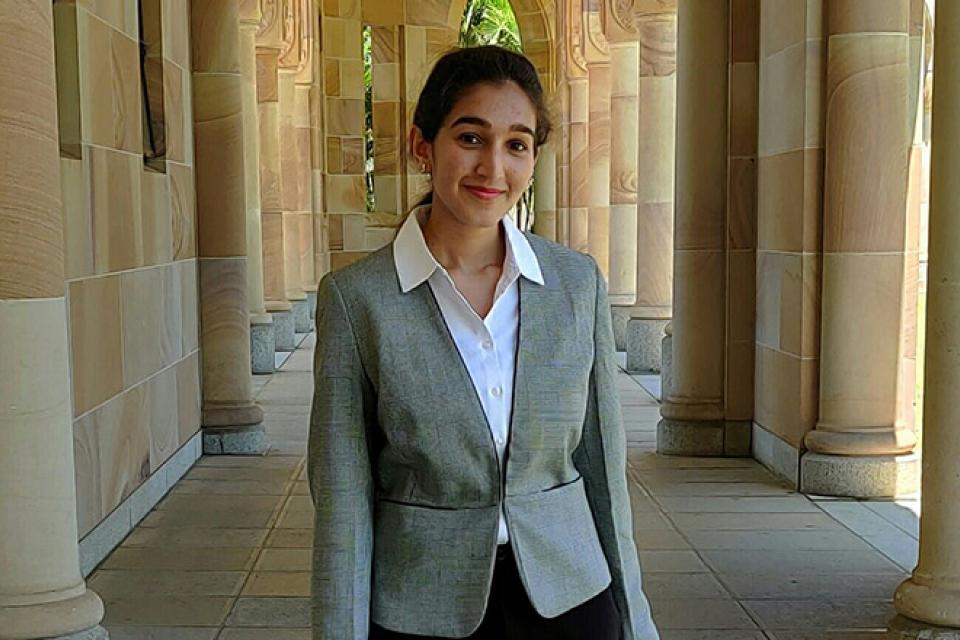
She also enjoys meeting new people every day and getting the opportunity to learn about their life stories and watch them show growth and resilience in light of the challenges they face.
“I am uniquely placed in the team, as I get to see a young person first come into headspace, work with them in an ongoing manner, and also help them transition out of headspace as they complete their therapy goals,” says Shrika.
“As a counsellor, it feels great to see your clients manage their wellbeing independently and thrive.”
The role at headspace also allows her to:
- work with diverse cases and symptoms that challenge her as a counsellor
- have a range of different tasks to keep the job interesting every day
- work within a multi-disciplinary team to continue learning and growing as a clinician
- access ongoing training and career development support.
Through her own work and that of other dedicated counsellors, Shrika hopes that more and more youth will find the support they need sooner. Because while improving a young person’s mental health may seem like a tiny drop in the ocean in the grand scheme of things, for that one person, it could be the drop that matters most.

